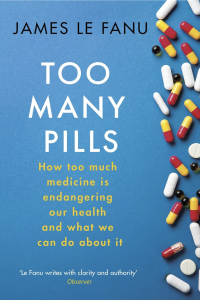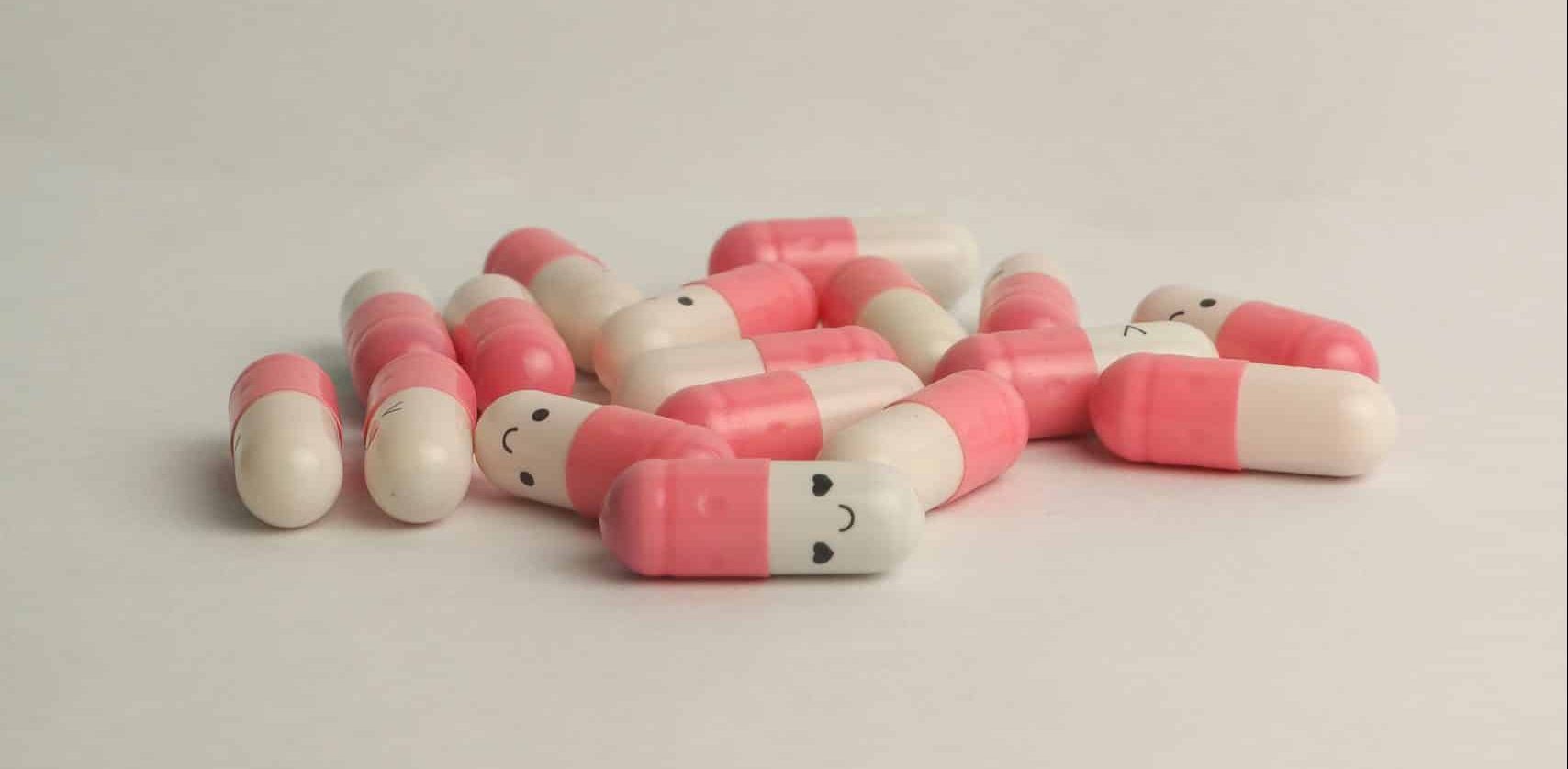 Elizabeth Rozario is a GP for home visiting service and life coach, helping daughters caring for ageing parents so that they can face the future with peace & courage. She is on LinkedIn
Elizabeth Rozario is a GP for home visiting service and life coach, helping daughters caring for ageing parents so that they can face the future with peace & courage. She is on LinkedIn
In over 20 years of working in general practice, I have been dealing with an inner turmoil that I feel compelled to share with you.
I have recently read ‘Too Many Pills – How too much medicine is endangering our health and what we can do about it’ by James Le Fanu and it has not only confirmed my suspicions but I also I recognised my story within its pages. Now I feel that I have permission to acknowledge my concerns – because this book has answered all my questions – and I wish to share my journey with you.
I empathise with those of my patients who have complained about the number of pills they have been forced to take. I need to explain why I did what I did, and I wish to apologise for the harm I may have caused you. I hope you will understand and forgive me. Maybe we can find time to discuss your agenda and what is important to you.
In 1976 Henry Gadson, chairman of Merck pharmaceutical company, stated he wanted ‘to sell drugs to everyone’.
Ten years later, Professor Geoffrey Rose wrote about treating whole populations, not just sick individuals. He said ‘this ‘population strategy’ would be more effective at reducing disease, even though it would include many people at low risk. However, Rose pointed out ‘the “prevention paradox” – preventive measures may greatly benefit public health while only offering small gains for each person’.
Rose’s ideas have been criticised for allowing drug companies to over-medicate people unnecessarily. Critics argue pharmaceutical companies have used the population approach to justify putting too many people on medications for little benefit. They say this has led to the medicalisation of normal life without good reason.

I empathise with those of my patients who have complained about the number of pills they have been forced to take.
Let’s look out the example of the happy pill, Prozac. In the late 1990s everyone was encouraged to take this happy pill to get over all their troubles. Over time we have learned about its side effects and that talking therapies, not medication, are the best treatment for mild to moderate mental illness.
In the 1990s the Quality and Outcomes Framework (QOF) were introduced in the hope of driving up standards and reducing the health inequalities between the rich and poor. General practitioners were given targets to achieve, and we would get payment for it. Practically it meant ticking boxes. I had to confirm that I had checked your blood pressure, height, weight, smoking status, and alcohol consumption. Failing to get collect this data meant we would not reach the targets and that failure had a financial impact – it would affect the income for the practice. The introduction of QOF point scoring took away the focus from the patient and instead pointed it towards searching for preventable illnesses.
What this meant is that when you came to see me, I was only allowed to spend five minutes of our time together to deal with your agenda, and then I had to switch to my agenda of collecting those data.
During the following decades, drug companies then manipulated the data we had collected on their behalf to show how beneficial the tablets were. Coronary heart disease, strokes and cancers are all age determined and they are natural events that may be postponed but are no more preventable than ageing itself.
The causes of vast majority of illnesses are still unknown. Countless guidelines have been produced – backed by the drug companies – that clinicians like me were encouraged to follow. Our experts were convinced by this research and at educational meetings, would explain the benefits of the various drugs and explain the guidelines that were being imposed.
Over the years, I have attended educational events, and learned about the latest research on hypertension, diabetes, lung disease and how treatment for heart failure has evolved.
However, I found myself asking WHY? Not out loud, but in my head. Other thoughts I had included a) this is creating extra work for me when there is already too much and b) who is benefiting from this?
I wanted to discuss the side effects, the cost – benefits. I wanted to ask to see the actual data and have it explained clearly. While those presenting talked about relative risk and absolute risk, I wanted to know the numbers needed to treat and what it really meant to patients. I wanted to shout out keep it simple I cannot retain all these numbers! In hindsight what was happening is a trickle down of limited, but manipulated information from drug companies to consultants and then down to general practitioners like me.
When studying for the MRCGP exams, I learned how to interpret and critically appraise research papers. Critical thinking and reading widely has been instilled into me since school and encouraged throughout university.
All around me practice nurses, consultants and other GPs were following guidelines without questions. The general feeling was this is what we must do because the guidelines tell us, and they are supported by the evidence. I felt like the only dissenting voice and so felt compelled to follow this groupthink.
I felt guilty for being sceptical and questioning what was being forced upon us. Articles in medical journals that truly interested me were ones that interrogated the current guidelines and the data upon which they were formulated, and highlighted harms from the various medication.
Suddenly, scoring systems, QRISK2, FRAX, appeared from nowhere and were imposed on us, but it is impossible to find where these were developed. I have witnessed the increase in workload, more prescriptions to sign and no opportunity to really scrutinise the prescriptions or even ask patients what they were feeling. Patients are under close surveillance with annual blood tests and examinations and medication reviews. Blood tests may show slight abnormalities, which are only a physiological variation, but these need to be repeated, to make sure that the information we are gleaning from them is correct.
My inner turmoil was a clash between what the experts were telling me and what I was witnessing in real life. My patients were telling me about the side effects; I could see the blood results were abnormal and that the abnormality was almost certainly due to the tablets I had prescribed, but I felt powerless to do anything different.
I suggested that each patient read the information leaflet enclosed in their medication, which are of course all in small print. I felt powerless. I empathised with those of my patients who hated taking these pills and were suffering from horrible side effects, including tiredness, muscle aches, headaches, bruising, bowel and bladder problems. GPs are repeatedly told that statins are safe and cause no harm. I am in the minority for doubting the data and guidelines.
I feel guilty for causing suffering to many hundreds of patients because I have been forced to follow guidelines. I had to send many to hospital due to adverse effects of polypharmacy. Reading the discharge summaries of these patients is upsetting as so many of them many were preventable admissions.
I am a petite brown female doctor and I do not hold as much perceived power and authority as, for example, a tall white male doctor or a consultant. Over the years I’ve tried to have open discussions with patients about the potential harms versus the benefits of taking all their pills. However, the patients invariably feel obliged to continue taking the pills prescribed by previous GPs who has, for example, since retired or prescribed by hospital consultants.
With elderly people, there is now growing evidence that these drugs are causing greater harm than good and are affecting their quality of life. There is no evidence showing the benefits of long-term use of many of these tablets. When I suggest perhaps stopping the statins in a frail elderly person their relatives then accuse me of giving up on them. The relatives believe that the tablets have kept their loved one alive and so must continue to be taken.
Articles in medical journals that truly interested me were ones that interrogated the current guidelines and the data upon which they were formulated, and highlighted harms from the various medication.
I am so tired of the pervading fear of complaints and litigation. I am tired of all of the difficult conversations with patients and their loved ones. Slowly, over time the internal conflict I am describing has eroded my empathy and compassion. I feel disempowered and that I am losing my critical thinking. My autonomy to do what is best for my patients has been significantly eroded. I began to feel like a bad doctor for not wanting to follow protocol and guidelines, and fiinally, feeling completely disillusioned with my profession, I suffered from burnout and exhaustion. I have since recovered and learned to be human again. I understand empathy and compassion again because I have learned that I am also a vulnerable human being.
So, this is my new purpose in life – to create opportunities to have open, honest conversations, and pass autonomy and control back to my patients. Let’s get back to basics and think about their agenda and what matters most to them. I want to ask them what is more important; quantity of life or quality of life? The literature and evidence all show that these pills do not prevent death or prolong life and so maybe we should think differently?
There is a growing body of evidence showing the harm caused by pills. Contrary to what we have been led to believe, there has been no increase in life expectancy and quality of life from intensified therapies. There have been no significant changes in mortality. Instead, the true impact of this over-prescribing is that we are now seeing a loss of critical thinking amongst clinicians and a de-professionalisation and loss of respect for the autonomy of doctors.
In summary, pharmaceutical companies are selling drugs to everyone by medicalising every aspect of our lives. There has been a false belief that if we treat an entire population as being sick, it would benefit everyone. However, this is patently untrue because a lot of these illnesses are due to ageing itself which cannot be prevented. There is growing evidence that these medications are causing harm and leading to hospitalisation and suffering. The individual’s autonomy has been taken away from them by withholding information. The individual has been disempowered.
I am angry and upset with the experts, scientists and researchers who have the knowledge but failed in their duty to educate me, the clinician. They deliberately withheld data, but I have borne witness to patient suffering. Given correct information, I can have a true fully informed conversation with my patients. Only once they understand the harms and benefits of any particular treatment can they give their full, informed consent. I want to tell them that they have a choice because it’s their body and their life.
I am sorry for letting down my patients, but I have been duped by Big Pharma. I am glad to know that I was right to be cynical. We should all recognise our human side and our mortality.
Featured book: James Le Fanu,






